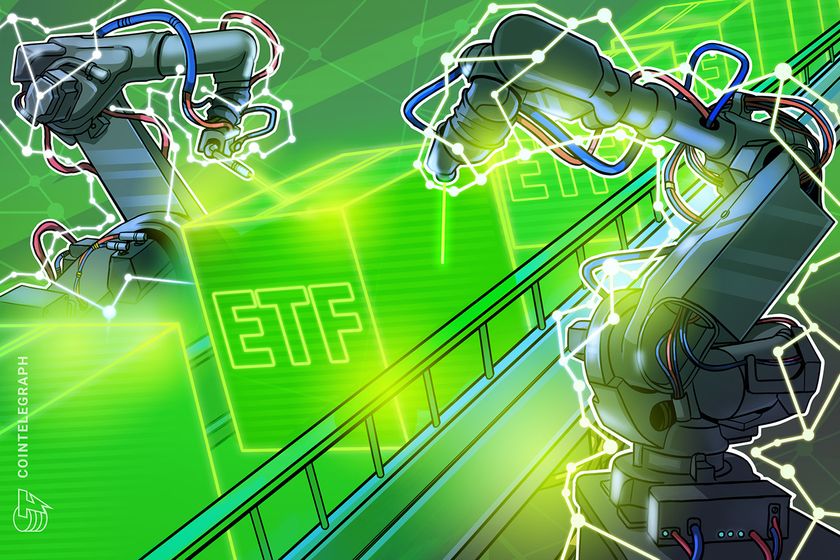
The crypto bills could hand power to the purportedly more crypto-friendly CFTC and better define the SEC’s jurisdiction.
Since 2022, there have been at least 50 digital asset bills reportedly introduced to Congress, aiming to govern everything from stablecoins to the jurisdictions of United States regulators.
However, at least four of them are seen as potentially having a major impact on the industry (if passed) — given the attention from lawmakers and the crypto industry alike.
Financial Innovation and Technology for the 21st Century Act
This bill introduced on July 20, aims to create a solid process for determining if a digital asset is a commodity or security and would clarify the jurisdictions of regulators.
Introduced by Republican members of the Agriculture and Financial Services Committees of the United States House, the bill would give the Commodity Futures Trading Commission (CFTC) power over digital commodities and clarity on the Securities and Exchange Commission’s (SEC) jurisdiction.
Introducing the Financial Innovation and Technology for the 21st Century Act. This bill establishes a regulatory framework for digital assets, protects consumers, fosters innovation, and positions America as a leader in finance and technology. #crypto https://t.co/0ihzY3MP0k
— House Committee on Agriculture (@HouseAgGOP) July 20, 2023
A process for crypto assets that have been labeled securities would also be given a path to be re-labeled as commodities — which could see some projects revived after being effectively shut down due to past legal decisions.
Responsible Financial Innovation Act (RFIA)
A bill with similar goals — known as the Lummis-Gillibrand bill or the RFIA — aims to clarify the SEC and CFTC’s roles in crypto regulation. It also aims to give greater consumer protection by providing laws “to prevent another FTX-style event from occurring,” according to the bills fact sheet.
The crypto asset industry is here to stay.
— Senator Cynthia Lummis (@SenLummis) July 12, 2023
Today, @SenGillibrand and I are reintroducing landmark legislation to create a federal regulatory framework that allows crypto businesses and investors to prosper here in America while protecting consumers from bad actors. pic.twitter.com/z2pr0evWt2
Digital asset tax treatment clarity is also covered and the Federal Reserve would be ordered to process bank applications for master accounts from crypto firms “on an equitable basis.”
It would also see depository institutions be the only ones allowed to issue stablecoins, would make room for decentralized autonomous organizations (DAOs) in the tax code and commission an advisory committee along with a slew of regular reports on the industry.
Digital Asset Market Structure Bill (DAMS)
Introduced on June 1, DAMS is another bill aiming to define the crypto-related roles of the SEC and CFTC and set a framework for the regulators to make determinations on if certain cryptocurrencies are securities or commodities.
The bill is getting some attention, on June 26 Representative Maxine Waters sent letters to Treasury Secretary Janet Yellen and SEC chair Gary Gensler asking them to weigh in on the bill.
#RELEASE: Ranking Member @RepMaxineWaters Calls on @USTreasury, @SECGov to Share Analysis on Republican Digital Assets Market Structure Bill | https://t.co/lloLm7Lho6 pic.twitter.com/qbPNMSRl5v
— U.S. House Committee on Financial Services (@FSCDems) June 26, 2023
Under the proposed bill, before a certain crypto token is given commodity status, it would have to undergo certification with the SEC to prove its adequately decentralized.
Crypto exchanges would be able to register with the SEC as an alternative trading system (ATS) and the regulator wouldn’t be able to deny registration due to a platform trading digital assets.
The crypto firm Prometheum is an SEC-registered ATS and can offer trading, clearing, settlement and custody of digital assets, although it's currently unclear what assets the SEC permits.
DAMS would clarify ATS rules and allow for digital commodities and stablecoins to be traded on ATS platforms and the SEC would be required to allow broker-dealers to custody cryptocurrencies if they meet requirements.
Digital Commodity Exchange Act (DCEA)
First introduced in September 2020, an updated version of the DCEA was last re-introduced in April 2022 adding that stablecoin providers could register as a “fixed-value digital commodity operator” inclusive of recording and reporting requirements.
The DCEA hands the CFTC the power to register and regulate spot exchanges which are brought under the same rules as other commodity exchanges.
1/ We’re proud to support the re-introduction of the Digital Commodity Exchange Act (DCEA). There is a growing consensus in Washington that federal oversight of digital asset spot markets is needed, and we believe that the DCEA sets forward an intelligent framework... https://t.co/U0RMMOKBe9
— Blockchain Association (@BlockchainAssn) April 28, 2022
Cryptocurrencies that are not considered securities are labelled digital commodities under the CFTC’s purview and the SEC would police crypto securities offerings.
Crypto project developers could also voluntarily register with the CFTC for submitting disclosures required to publicly trade and list their asset on an exchange.
Other bills
Many more crypto bills are floating through Congress with various success. Stablecoin regulatory proposals have come through the Stablecoin TRUST Act and the Stablecoin Innovation and Protection Act.
Related: Congress may be ‘ungovernable,’ but US could see crypto legislation in 2023
The descriptively titled Crypto Consumer Investor Protection Act and the Crypto Exchange Disclosure Act were introduced in December 2022 but haven’t seen much movement since.
The Digital Asset Anti-Money Laundering Act was also introduced in Decemeber by Senators Elizabeth Warren and Roger Marshall would regulate crypto ATMs and ban financial firms from using crypto mixers. Warren vowed its reintroduction in February but that action is yet to happen.
Opinion: GOP crypto maxis almost as bad as Dems’ ‘anti-crypto army’

